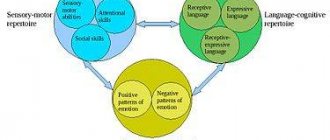What is tolerance?
In Russia, some people have a rather vague idea of what tolerance means. Tolerance is somewhere in the West, in Europe, but here everything is fine. However, we live in a society, almost every day we encounter troubles that come from other people. They cause our indignation and irritate us, which sometimes leads to serious conflicts. Sound familiar? Let's talk about tolerance.
Tolerance is, in simple words, the ability to show patience and respect for someone else's opinion, even if you do not share it.
Tolerance as a value
From the point of view of psychology, we do not have a specific definition recognized by different authors.
Some perceive it as the value of cooperation in conditions where people have conflicting positions.
Others perceive it as accepting views that differ from your own.
Still others believe that tolerance is calm, peace-oriented, the opposite of aggression.
Another point of view: this is the ability to listen carefully to someone else’s point of view, find a reasonable grain in it and respect it, even if it contradicts yours.
Finally, tolerance is understood by some as the tendency to reach agreement without conflict.
These definitions can be considered ordinary, or they can be considered scientific to denote tolerance as a psychological phenomenon.
Where did the word tolerance come from?
Tolerance comes from the Latin word “tolerantia”, which means patience, endurance, endurance. The term tolerance was first used when writing the Edict of Nantes in 1598. With this edict, King Henry IV of Bourbon of France decided to end the religious wars that had rocked the country for many decades. Equalizing the rights of Catholics and Huguenots, the king called for religious tolerance and an end to persecution on religious grounds.
Edict of Nantes
Tolerance, from the point of view of psychology, is an exclusively human ability to show patience towards phenomena that are alien or unpleasant to oneself. By nature, people differ in appearance, habits, traditions, and each of them has the right to freedom, preserving their individuality.
People are designed in such a way that on a subconscious level they are drawn to their own kind. Using nonverbal symbols, they unite with other individuals with whom they have something in common, forming a kind of community. A person can simultaneously belong to many communities. This is a circle of friends, colleagues and other groups of interests. Religion, profession, nationality, sport unite people, but can cause conflicts with individuals who belong to another community.
Awareness of freedom and defending one’s own beliefs is the main condition for the development of personality. The concept of tolerance presupposes the understanding that another person may have the same freedom and beliefs. The ability to accept the fact of differences between individuals indicates confidence in one's own positions. A tolerant person can show empathy and look at the world through the eyes of his opponent. This does not mean that you need to share someone else's beliefs and change yourself. It is enough to accept these differences and show loyalty.
Tolerance and intolerance go hand in hand in society. In all reference books, intolerance is deciphered as intolerance, xenophobia, conflict, extremism, etc. By definition, intolerance is an unconscious division of society along the lines of “friend or foe” and active rejection of “outsiders.” As a rule, this rejection is based on prejudices and prejudices that are characteristic of each subject. An extreme degree of intolerance leads to terrorism and conflicts, even open military action.
By declaring the inadmissibility of intolerance, they miss one very important thing. Every coin has two sides, and people also have many sides. During the period of personality formation, adolescents develop constructive or destructive intolerance.
Constructive intolerance helps a teenager develop self-identification as an individual. From the moment of his birth, a person finds himself in a society that imposes its rules on him from all sides. School, parents, friends, everyone is trying to remake the personality to suit their needs. At the same time, the desires and ambitions of the person himself are absolutely not taken into account. In this case, intolerance acts as a protective mechanism of the psyche, which allows the individual to resist external pressure and develop independently.
According to research by psychologists, teenagers who do not have intolerance also do not have ambitions, goals and life plans. They have reduced self-esteem and difficulties in personal development.
B.Z.Vulfov on tolerance
We believe that the closest to reality is the interpretation offered by the domestic author B.Z. Wulfov. He defines tolerance as the ability of people to coexist with others who have a different mentality and lifestyle.
The current state of affairs in the world community encourages us to take more and more seriously the formation of a culture of relations between nationalities already in the preschool period.
Therefore, already within the kindergarten, it is necessary to instill in children a tendency to accept someone else’s point of view, their values, and their cultural characteristics.
Tolerance allows everyone to be free to hold their own views on many issues. At the same time, everyone is obliged to recognize that other people also have this right.
Types of tolerance
Tolerance and its types actually indicate that it is a global problem. The cause of all conflicts in the world is the lack of tolerance in society. Having their own beliefs, some people cannot accept the fact that other people may have their own opinions. Of course, sometimes it can be funny to watch political talk shows where opponents throw water at each other and throw chairs, but in reality it is not funny at all. Lack of agreement leads to destabilization of the political situation at the state level.
In total, there are 9 types of tolerance:
1. Political tolerance – respect for representatives of different political forces and movements. 2. Interethnic tolerance – characterized by tolerance towards people of all nationalities.
3. Gender – the ability to treat a person with respect, regardless of his gender.
4. Racial – acceptance and understanding of the individual, no matter what race he or she is.
5. Tolerance towards people with disabilities - human rights and freedoms should not depend on his physical health.
6. Religious – all religions deserve respect and have the right to life.
7. Sexual orientation – the inadmissibility of homophobia towards people of non-traditional sexual orientation.
8. Educational – acceptance of an individual, without regard to his diploma, or lack thereof.
9. Interclass – respectful attitude towards people, regardless of their material wealth.
Practice shows that the more educated a person is and the broader his views, the more tolerant he is towards people and the differences between them.
Tolerant attitude and its manifestation
A tolerant attitude towards other people is manifested in the fact that a person is ready to accept them as they are. He tries to develop relationships with them that are based on agreement.
At the same time, tolerance presupposes the avoidance of the other extreme: the craving for indifference.
A tolerant person does not act in such a way as to infringe on his own interests.
Tolerance is an active position and reciprocity of each of the interacting parties.
We can say that tolerance is an integral part of a mature personality.
A person must have his own interests and values. He must be able to protect them. But do it in such a way as to continue to respect other people's positions and other people's values.
Examples of tolerance
Each country has its own traditions and culture, and it is not always possible to sum everything up to a single denominator. What is normal in one country may seem unacceptable in another. There are examples of tolerance that clearly demonstrate these differences.
We are characterized by religious tolerance, examples of which we see every day. Catholics, Orthodox Christians, Buddhists, Islamists, Jews and atheists communicate calmly at congresses, without trying to convert the interlocutor to their faith. The times of religious wars are over and this is a huge achievement of humanity.
Another example is a vegan, a supporter of a healthy lifestyle and an ordinary person. It will be tolerant not to attack meat eaters, and not to accuse them of killing animals. Each person has his own path and it is impossible to force everyone to go his own way. You can explain your position, but nothing more. A tolerant person does not accept violence against himself and will not allow it towards another person.
Tolerance and tolerance are similar concepts, and yet they are somewhat different. Tolerance is an adaptive property of the psyche. A person can get used to (adapt) to irritating factors. This is an acquired property that, if desired, can be cultivated in oneself. Tolerance and patience depend more on the character of a person. We have different pain thresholds and everyone’s “cup of patience” is different. Someone can spend the entire day explaining his mistake to a perpetually distracted employee and not once cry out. Another’s patience will run out within 5 minutes, and he will go drink valerian. A tolerant person simply admits his powerlessness and moves on to other things.
Tolerant behavior is not always ideal, as it can provoke the opponent to violate personal boundaries. After all, a calm reaction to a stimulus can be interpreted as weakness. A tolerant person is one who can look at the world philosophically, perceiving it as it is. Someone who is tolerant will not try to reshape society to suit themselves, but will try to adapt to what irritates him.
How does tolerance affect people's relationships?
Tolerance in the modern world is necessary, since the process of globalization cannot be stopped. Gradually, politics, culture and economics are unified and the creation of a multicultural space is inevitable. Multiculturalism implies a tolerant attitude towards people, their interaction, without losing one’s own identity.
Tolerance in Europe and tolerance in Russia are somewhat different and some issues cannot yet be resolved.
In Europe, they are concerned about gender issues and transgender issues. To provide support to this segment of the population, the authorities decided to show tolerance by recommending that they eliminate from their vocabulary everything that clearly indicates a person’s gender. Mom, dad, husband, wife, it is recommended to replace all this with the words “parent” and “partner”. By the same principle, it is not recommended to use the phrase “breast milk”, since transgender people cannot breastfeed their child, although there are already such cases.
For the USA and Europe this is normal and this is a kind of victory over homophobia, but in Russia such initiatives are not supported. Sexual minorities are already treated with tolerance, but there are no plans to promote and provide special rights to the LGBT community.
What does it mean to be a tolerant person in Russia?
Quite a difficult question. After all, this is a huge multinational country in which many cultures, religions and customs have merged.
Most Russians were raised in the spirit of Russian Orthodox traditions, which place great emphasis on morality and ethics. Mercy and patience are virtues that every person should possess. The ability to show compassion and understanding towards one’s neighbor is the true strength of a person.
It is difficult to say how tolerance affects a person. After all, there are different situations in life when intolerant people try to violate your boundaries.
An intolerant person is someone who criticizes your appearance, character, social status and interferes without asking in your life. In such cases, we need to remember that tolerance does not mean silent submission. There is no need to turn the other cheek, but one should firmly limit the boundaries of permitted interference.
Critics of tolerance argue that promoting tolerance is a way of manipulating society. By cultivating indifference in people, one can achieve an ideally controlled society.
Philosophical interpretation of tolerance
According to some encyclopedias on philosophy, the term tolerance is derived from the Latin word, which is translated into Russian as patience. It implies a tolerant attitude towards other habits and views.
A tolerant attitude is especially important when interacting with people of a different religion, with representatives of another people or nation. Such people are confident in themselves, they are aware of the reliability of their point of view, so they are not afraid to compare their points of view with others and are not afraid to raise questions about spiritual concretion.
Thanks to a tolerant attitude towards other people, a person is able to establish positive contacts with them and communicate with them.
Relationships between people and ways to develop tolerance
It is necessary to recognize that people differ in appearance, they have differences in speech, in values and behavior. And other people have the right to live in this world, preserving their individual characteristics, so you cannot impose your views on them against their will.
One of the ways to develop tolerance is to convey to a person the norms and rules of behavior that are significant for society. They were created as a result of the vast historical experience of interaction between different cultures.
They allow you to develop harmoniously and evenly.
The whole world has a common value system, which is reflected in the legislation of many states. This includes the principles of human rights, a tolerant attitude towards the mistakes of others, the desire for non-violent resolution of difficult situations, the ability to show compassion, and recognize the value of human life.
Another important component for the development of tolerance is the need for a person to understand himself, expand his horizons, and acquire his own ideological position.
These qualities enable a person to understand what he is like. It also helps him to be more positive and act appropriately. This has a beneficial effect on a person’s self-esteem.
From Shchekoldina’s point of view, when a person begins to understand the world around him, he is first of all deeply interested in himself, in his inner world.
A person begins to be interested in himself, his own life, his own qualities, and begins to compare himself with other people. Thanks to developed tolerance, a person perceives himself and the people around him much more adequately.
Tolerance is a multifaceted concept
The use of the term in various fields of activity, science and life is so extensive that its detailed classification must be dealt with separately. Here we note that there are several categories of this concept, for example:
- pedagogical;
- medical;
- scientific;
- political;
- management and other categories.
In addition, types, species, subtypes and subspecies are common. In psychology , for example, tolerance is of the following types :
- Natural – kindness (what is this?), mercy and trustfulness, characteristic of the behavior of a little man;
- Moral - developing in wise, self-sufficient people. They are tolerant of others;
- Moral. Not to be confused with moral. This type shows how much a person trusts others. People with this type of tolerance tend to accept the views and values of others. Such people do not react to scandals and stress;
- Ethnic, presupposing a patient attitude towards the customs, culture and way of life adopted by other nationalities. Such people can live for as long as they like in an alien cultural space.
Each of these types is divided into subspecies depending on how a person relates to:
- circumstances and their participants;
- people according to different characteristics (typological subtype);
- employees and colleagues (professional subtype);
- to everything in general (collective).
Based on the results of these subtypes, it is analyzed how tolerant a person is.










